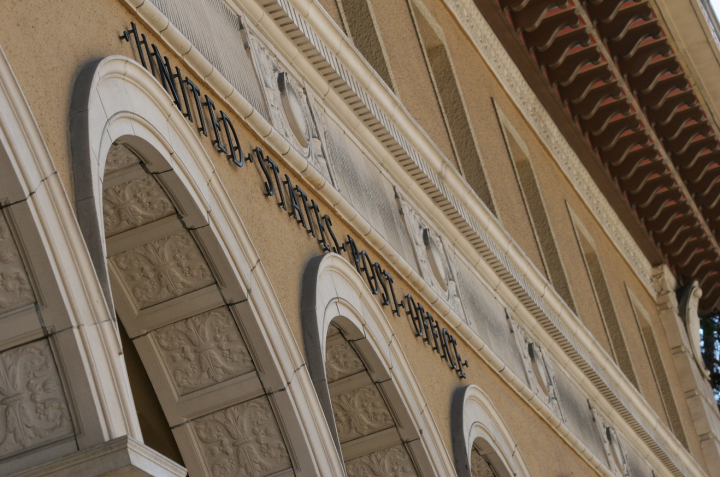The name of the purchaser is still secret, although there have been rumors that it is a Berkeley developer. Berkeley has not been informed by the USPS who the purchaser may be, according to Christine Daniel, city manager.
The post office confirmed to the Contra Costa Times Friday that the building is “under contract but not yet sold.”
The Postal Service first announced it wanted to sell the downtown post office on Allston Way in June 2012. It said it would move its operations to another site in downtown Berkeley.
The announced sale was part of a massive USPS sell-off of historic post offices to reduce its operating costs. The USPS has been in financial difficulty since Congress ordered it in 2006 to prepay health benefits for future retirees at a rate of $5.5 billion annually. That has placed a huge strain on the agency.
According to post office activists, the USPS has circumvented state and national laws against selling historic properties by declaring sales as “relocations,” rather than closures. This means there are fewer ways to slow down or stop the process, and very limited means to appeal the decision.
There have been so many sales of historic post offices, despite community outcry, that the National Trust for Historic Preservation put historic post offices on its “2012 List of America’s 11 Most Endangered Places.”
The Berkeley City Council has opposed the sale of the post office, a Renaissance Revival building on Allston Way that was designed by Oscar Wenderoth and erected in 1914. The interior contains a WPA mural by Suzanne Scheur depicting early Berkeley history. The building is on the Historic Register.
The City Council has tried a number of maneuvers to stop the sale, including the recent rezoning of the Civic Center core. The new law says the historic buildings in the core, including the old City Hall and the Veterans' Memorial Building, cannot be used for commercial purposes. Height limits are capped at 50 feet, or the height of old City Hall.
There have been numerous demonstrations and camp-outs on the steps of the post office by Save the Berkeley Post Office and other groups to protest the building’s sale.
Despite the outcry, the USPS has determined that the sale of the post office would produce “no adverse effect.” The post office has pledged to require the new owner to comply with a “preservation covenant,” to ensure that the historic aspects of the structure are preserved.
Not all residents of Berkeley are opposed to the post office sale. John Caner, who runs the Downtown Berkeley Association, has spoken out at council meetings to suggest the building might be used in different ways to bring new vitality to the area.
Berkeley City Councilman Gordon Wozniak said he thinks the building could be repurposed, since 80 percent of it is empty. (The post office has already moved its distribution facility to another site.) He would like to keep the front section as a post office, but the rear could be used as a farmers market or other community use.
“I don’t think saving the building to keep it empty” is a good idea, said Wozniak.
Berkeleyside publishes many articles every day. To see all our stories in chronological order, and read ones you may have missed, check out All the News.
